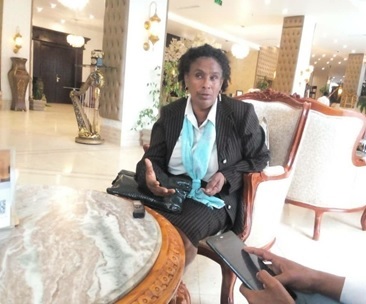
Amaranth, a versatile plant known for both its seeds and leaves, holds significant nutritional and medicinal value, yet it remains underutilized across Ethiopia. Traditionally known in various states, including the Southwest Ethiopia,Konso, and Hawassa, it has the potential to enhance food security and generate income if integrated into the nation’s food system and produced at an industrial scale.
According to a statement by Amaranth Farm Ecolodge, fully utilizing this crop could incorporate it into traditional food systems, creating opportunities for women and youth while boosting national food security. Other countries have successfully tapped into amaranth’s potential, setting a model Ethiopia could follow.
Amaranth Farm Ecolodgeco-founder and Executive Director Mulunesh Jebessa has made it her mission to promote amaranth as a climate-smart, nutrient-dense crop. As a social entrepreneur and environmental advocate, Mulunesh emphasizes sustainable practices, eco-friendly tourism, and empowering women through nutrition-sensitive agriculture.
In her conversation with The Ethiopian Herald, Mulunesh highlighted that despite amaranth’s dual-purpose use as food for humans and livestock, it remains neglected. She believes scaling up its production and processing into staple foods could revolutionize Ethiopia’s food culture and address malnutrition. “Our goal is to integrate amaranth into the traditional food system, combining it with other nutritious ingredients like cabbage, yam, and cassava,” she said. “Processed amaranth products could also serve as life-saving food for vulnerable groups, including migrants.”
Mulunesh and her team are actively working to connect with international partners to exchange knowledge and promote amaranth-based food systems. She also stressed the importance of raising awareness about amaranth’s high protein and micronutrient content, positioning it as a valuable subsistence crop that grows well alongside maize.
As a women-led organization, Amaranth Farm Ecolodge not only focuses on food security but also serves as a platform for women’s economic empowerment. “We are committed to empowering women to become change agents in the green economy,” Mulunesh explained. “By incorporating women, youth, and individuals with disabilities into climate action initiatives, we ensure that our efforts are inclusive and sustainable.”
Her organization also promotes solar-powered solutions, such as solar pumps and energy-saving technologies, as part of its climate action efforts. Mulunesh believes these innovations can help communities adopt alternative, sustainable practices and improve livelihoods.
Ultimately, Mulunesh calls for collaborative efforts to scale up innovative ideas led by women, fostering a sustainable food system while addressing the interconnected challenges of nutrition, climate action, and social inclusion.
BY MISGANAW ASNAKE
THE ETHIOPIAN HERALD SUNDAY EDITION 20 OCTOBER 2024





